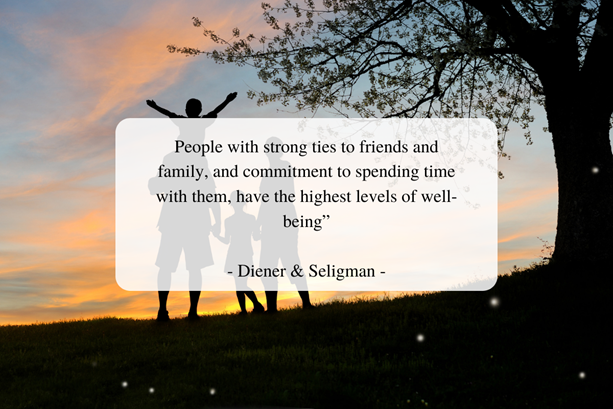In today’s environment relationships can be put under a lot of stress. From financial worries, our children’s education, and wellbeing, to everyday family struggles. This impacts not only on our significant other, but can also have a strain on our children, siblings, and other members of the family by how we react. We may snap at those around us, withdraw from the people we love, experience a lack of sexual intimacy, or increase our smoking and alcohol consumption. The impact long-term stress can do on our mental wellbeing can also have an impact on our physical wellbeing. Research suggests that long-term stress can be linked to conditions like irritable bowel syndrome (IBS), chest pain, frequent colds, and infections. That’s why addressing the causes of stress and having strategies in place, can reduce or even prevent any long-term damage.
But how can the causes of stress be addressed? Surely, stress is a part of life?!
Well yes, some causes of stress lie outside of our control so we can never fully remove stress from our lives. But how we handle it, is key. By developing strategies that can prevent the causes of stress from overwhelming us.
Communication is Key
One strategy that I support my clients in is communication. Simple, but an effective strategy to develop. Communication can often be lacking, especially when we are under pressure. Yet if we don’t have the right communication tools to hand, our relationships can quickly turn hostile. Communication effectively allows individuals to share their thoughts, opinions, feelings and expectations. Effective communication can help build a good, strong, and deep connection with others. And, as evidence from Dr Robert Waldinger, a Psychiatrist, and Director of the Harvard Study of Adult Development stated, “The lesson that came from tens of thousands of pages of…research was that good relationships keep us happier and healthier”.

The Role of Happiness
The importance of happiness cannot be downplayed. When you feel happier, you are more in control of your thoughts, emotions, and behaviours. Better enabling you to be prepared for when stressful times come. Here are a few pointers:
- If you have self-awareness of what you do or you don't do, it will help to make changes to feel better in yourself.
- Self-care is very important as it will help you to maintain a healthy relationship with yourself. It helps you to be happier around people as well as manage others behaviour better. Self-care does not have to be expensive. Walking, running, reading, listening to meditation, spending time alone, or listening to music: will have a big impact on your emotional and mental health. Be aware of how you talk to yourself, so keep practising self-compassion and self-kindness.
- Exercising is also very important to support you with your physical health (heart, bones, muscles, and maintaining a good weight) and with your emotional and mental health. It can increase your self-esteem, confidence, help with sleeping better and help with reducing stress and anxiety.
- Mindfulness helps to regulate our emotions and to decrease the anxiety and stress of daily life. Learning to be in the present is a wonderful skill to learn. We cannot change the past, we cannot predict the future but we are in control of what we can do in the present. Therefore it teaches us to be more in the present.
- Healthy eating is so important too as it will help with your moods and energy levels therefore will keep on track with motivation, to feel stronger physically and mentally. It will give you the focus your need to manage tasks, work and support yourself as well as others.
- Sleep is very important as lack of sleep will have certainly have an impact on your moods, feeling tired therefore struggling to do things, not having the ability to look after yourself. I find that listening to sleep hypnosis/ meditation in the evening or while falling asleep help me a lot. Meditation gives a sense of feeling calm and at peace.
- Assertiveness is an important tool to practice as it is the key to communication. It helps with feeling valued, heard, being recognised and it will boost your self-esteem and confidence.

Strategies
My strategies involve working with individuals and families to provide a space where you can freely and openly talk about your thoughts, feelings and behaviour within a relationship. Clients are supported to communicate more effectively between each other, allowing them to express their needs and expectations. Developing their communication skills and learning better to express their needs within the relationships.
The results are that individuals and families relate more easily and appreciate each other’s motivations and thoughts, which goes a long way towards bringing them closer again by understanding them better.
Relationship counselling can be beneficial for all relationships (siblings, parent-child, friends etc.) If you are looking for a sympathetic and well-qualified counsellor in Salford, 121 Counselling are here to help.
Call me today to book your first session on 07305 920 437
Want to know more about the importance of happiness and communication? Have a read of the following articles.
